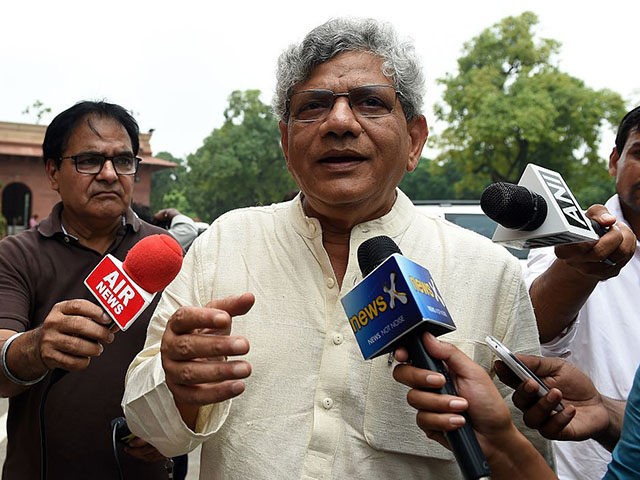India’s Supreme Court on Wednesday agreed to hear petitions against the Hindu-nationalist-led government’s decision to rescind the autonomy of New Delhi-administered Kashmir, the country’s only Muslim-majority region.
The highest court also allowed opposition politician Sitaram Yechury, the head of the Communist Party of India, to visit Indian Kashmir.
Yechury reportedly filed a habeas corpus petition challenging the detention of his colleague and the Communist Party’s secretary-general, Mohammed Yousuf Tarigami.
India’s Supreme Court ordered Yechury to submit a report on the conditions and whereabouts of his colleague.
Tarigami is among the hundreds of separatists, activists, and political workers detained in the region as part of New Delhi’s ongoing security lockdown and communication blackout.
Since revoking the region’s autonomy on August 5, Prime Minister Narendra Modi has also reportedly prevented opposition politicians from entering Indian Kashmir.
India has deployed thousands of additional security forces to New Delhi-administered Kashmir and already detained at least 2,300 people.
Reuters reports:
India’s Supreme Court said on Wednesday it will hear challenges in October to a government order revoking the autonomy of contested Kashmir, and it allowed an opposition politician to visit the region that has been under lockdown for weeks.
…
More than a dozen petitions have been filed in the Supreme Court questioning the legality the action, which the government said was aimed at developing the region at the heart of animosity with Pakistan for decades.
Nuclear-armed Pakistan, China, and India all have competing territorial claims to Kashmir.
The Hindustan Times adds:
The Supreme Court on Wednesday allowed Communist leader Sitaram Yechury and a Kashmiri law student in Delhi to travel to the Valley, which has been under a security lockdown since August 5 when Article 370 was scrapped in the state, under police protection and asked the two to submit a report on their return.
…
Allowing Yechury to travel to the Valley to meet his friend and party worker and to ascertain his whereabouts, the court said: “If Yechury is found to be indulging in any other act, it would be construed to be a violation of this court’s order.”
…
Another petitioner Aleem Syed Mohammed, a law graduate in Delhi’s Jamia Millia, had also filed a plea seeking information about his family in Kashmir, was allowed to travel to Anantnag under police protection, if required, to meet his parents. The top court also asked him to come back and report.
Some Supreme Court petitioners argue that the security lockdown violates India’s constitution and autonomy “within a federal framework is an essential fundamental right,” Hindustan Times notes.
Reuters points out:
The revocation of Kashmir’s special status in the constitution means people there will lose exclusive rights to property, government jobs, and colleges places and open them up to all Indians.
Prime Minister Narendra Modi says the reform will open up Kashmir’s economy to the benefit of all.
India’s top court also gave the Modi administration seven days to respond to a plea by Anuradha Bhasin, the editor of the daily Kashmir Times.
Bhasin is seeking a relaxation of the Indian government’s communication blackout, which includes the blocking of telephone and Internet services.
India and Pakistan claim Kashmir in its entirety, but a border divides most of the region between the two rivals.
China controls territory ceded by Islamabad. Meanwhile, India disputes China’s occupation of lands in New Delhi-held Kashmir.

COMMENTS
Please let us know if you're having issues with commenting.